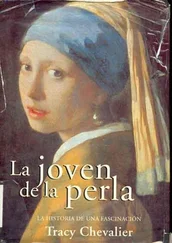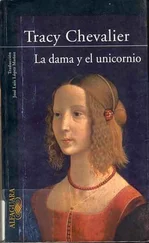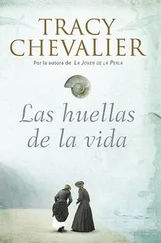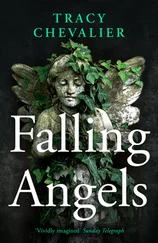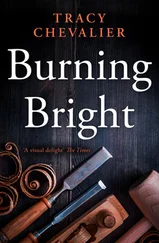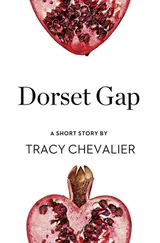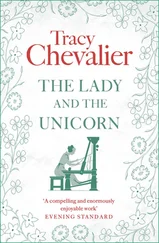Tracy Chevalier - Girl with a Pearl Earring
Здесь есть возможность читать онлайн «Tracy Chevalier - Girl with a Pearl Earring» — ознакомительный отрывок электронной книги совершенно бесплатно, а после прочтения отрывка купить полную версию. В некоторых случаях можно слушать аудио, скачать через торрент в формате fb2 и присутствует краткое содержание. Город: New York, Год выпуска: 1999, ISBN: 1999, Издательство: A Penguin Book, Жанр: Классическая проза, на английском языке. Описание произведения, (предисловие) а так же отзывы посетителей доступны на портале библиотеки ЛибКат.
- Название:Girl with a Pearl Earring
- Автор:
- Издательство:A Penguin Book
- Жанр:
- Год:1999
- Город:New York
- ISBN:0-7865-2016-7
- Рейтинг книги:4 / 5. Голосов: 1
-
Избранное:Добавить в избранное
- Отзывы:
-
Ваша оценка:
- 80
- 1
- 2
- 3
- 4
- 5
Girl with a Pearl Earring: краткое содержание, описание и аннотация
Предлагаем к чтению аннотацию, описание, краткое содержание или предисловие (зависит от того, что написал сам автор книги «Girl with a Pearl Earring»). Если вы не нашли необходимую информацию о книге — напишите в комментариях, мы постараемся отыскать её.
Girl with a Pearl Earring — читать онлайн ознакомительный отрывок
Ниже представлен текст книги, разбитый по страницам. Система сохранения места последней прочитанной страницы, позволяет с удобством читать онлайн бесплатно книгу «Girl with a Pearl Earring», без необходимости каждый раз заново искать на чём Вы остановились. Поставьте закладку, и сможете в любой момент перейти на страницу, на которой закончили чтение.
Интервал:
Закладка:
I took the washing to the courtyard and sat outside with my back to the door so that I would not have to see anyone. I wept as I scrubbed one of Maertge’s dresses. When I smelled Maria Thins’ pipe I wiped my eyes but did not turn round.
“Don’t be silly, girl,” Maria Thins said quietly to my back. “You can’t do anything for them and you have to save yourself. You’re a clever girl, you can work that out.”
I did not answer. After a while I could no longer smell her pipe.
The next morning he came in while I was sweeping the studio.
“Griet, I am sorry to hear of your family’s misfortune,” he said.
I looked up from my broom. There was kindness in his eyes, and I felt I could ask him. “Will you tell me, sir, if the quarantine has been set?”
“It was, yesterday morning.”
“Thank you for telling me, sir.”
He nodded, and was about to leave when I said, “May I ask you something else, sir? About the painting.”
He stopped in the doorway. “What is it?”
“When you looked in the box, did it tell you to remove the map from the painting?”
“Yes, it did.” His face became intent like a stork’s when it sees a fish it can catch. “Does it please you that the map is gone?”
“It is a better painting now.” I did not think I would have dared to say such a thing at another time, but the danger to my family had made me reckless.
His smile made me grip my broom tightly.

I was not able to work well then. I was worried about my family, not about how clean I could get the floors or how white the sheets. No one may have remarked on my good housekeeping before, but everyone noticed how careless I was now. Lisbeth complained of a spotted apron. Tanneke grumbled that my sweeping caused dust to settle on the dishes. Catharina shouted at me several times—for forgetting to iron the sleeves of her chemise, for buying cod when I was meant to get herring, for letting the fire go out.
Maria Thins muttered, “Steady yourself, girl,” as she passed me in the hallway.
Only in the studio was I able to clean as I had before, maintaining the precision he needed.
I did not know what to do that first Sunday I was not allowed to go home. I could not go to our church either, as it was in the quarantined area as well. I did not want to remain at the house, though—whatever Catholics did on Sundays, I did not want to be among them.
They left together to go to the Jesuit church around the corner in the Molenpoort, the girls wearing good dresses, even Tanneke changed into a yellowish brown wool dress, and carrying Johannes. Catharina walked slowly, holding on to her husband’s arm. Maria Thins locked the door behind her. I stood on the tiles in front of the house as they disappeared and considered what to do. The bells in the New Church tower in front of me began to sound the hour.
I was baptized there, I thought. Surely they will allow me inside for the service.
I crept into the vast place, feeling like a mouse hiding in a rich man’s house. It was cool and dim inside, the smooth round pillars reaching up, the ceiling so high above me it could almost be the sky. Behind the minister’s altar was the grand marble tomb of William of Orange.
I saw no one I knew, only people dressed in sober clothes much finer in their cloth and cut than any I would ever wear. I hid behind a pillar for the service, which I could hardly listen to, I was so nervous that someone would come along and ask me what I was doing there. At the end of the service I slipped out quickly before anyone approached me. I walked round the church and looked across the canal at the house. The door was still shut and locked. Catholic services must last longer than ours, I thought.
I walked as far as I could towards my family’s house, stopping only where a barrier manned by a soldier blocked the way. The streets looked very quiet beyond it.
“How is it,” I asked the soldier, “back there?”
He shrugged and did not reply. He looked hot in his cloak and hat, for though the sun was not out the air was warm and close.
“Is there a list? Of those who have died?” I could barely say the words.
“Not yet.”
I was not surprised—the lists were always delayed, and usually incomplete. Word of mouth was often more accurate. “Do you know—have you heard if Jan the tiler—”
“I know nothing of anyone in there. You’ll have to wait.” The soldier turned away as others approached him with similar queries.
I tried to speak to another soldier on a barrier at a different street. Though friendlier, he too could tell me nothing about my family. “I could ask around, but not for nothing,” he added, smiling and looking me up and down so I would know he didn’t mean money.
“Shame on you,” I snapped, “for seeking to take advantage of those in misery.”
But he did not seem ashamed. I had forgotten that soldiers think of just one thing when they see a young woman.
When I got back to the Oude Langendijck I was relieved to find the house open. I slipped inside and spent the afternoon hiding in the courtyard with my prayer book. In the evening I crept into bed without eating, telling Tanneke my stomach hurt.

At the butcher’s Pieter the son pulled me to one side while his father was busy with someone else. “Have you had news of your family?”
I shook my head. “No one could tell me anything.” I did not meet his gaze. His concern made me feel as if I had just stepped off a boat and the ground was wobbling under my feet.
“I will find out for you,” Pieter stated. From his tone it was clear that I was not to argue with him.
“Thank you,” I said after a long pause. I wondered what I would do if he did find out something. He was not demanding anything the way the soldier had, but I would be obliged to him. I did not want to be obliged to anyone.
“It may take a few days,” Pieter murmured before he turned to hand his father a cow’s liver. He wiped his hands on his apron. I nodded, my eyes on his hands. The creases between his nails and his fingers were filled with blood.
I expect I will have to get used to that sight, I thought.
I began to look forward to my daily errand even more than to cleaning the studio. I dreaded it too, though, especially the moment Pieter the son looked up from his work and saw me, and I searched his eyes for clues. I wanted to know, yet as long as I didn’t, it was possible to hope.
Several days passed when I bought meat from him, or passed by his stall after I had bought fish, and he simply shook his head. Then one day he looked up and looked away, and I knew what he would say. I just did not know who.
I had to wait until he finished with several customers. I felt so sick I wanted to sit down, but the floor was speckled with blood.
At last Pieter the son took off his apron and came over. “It is your sister, Agnes,” he said softly. “She is very ill.”
“And my parents?”
“They stay well, so far.”
I did not ask what risk he had gone to in order to find out for me. “Thank you, Pieter,” I whispered. It was the first time I had spoken his name.
I looked into his eyes and saw kindness there. I also saw what I had feared—expectation.

On Sunday I decided to visit my brother. I did not know how much he knew of the quarantine or of Agnes. I left the house early and walked to his factory, which was outside the city walls not far from the Rotterdam Gate. Frans was still asleep when I arrived. The woman who answered at the gate laughed when I asked for him. “He’ll be asleep for hours yet,” she said. “They sleep all day on Sundays, the apprentices. It’s their day off.”
Читать дальшеИнтервал:
Закладка:
Похожие книги на «Girl with a Pearl Earring»
Представляем Вашему вниманию похожие книги на «Girl with a Pearl Earring» списком для выбора. Мы отобрали схожую по названию и смыслу литературу в надежде предоставить читателям больше вариантов отыскать новые, интересные, ещё непрочитанные произведения.
Обсуждение, отзывы о книге «Girl with a Pearl Earring» и просто собственные мнения читателей. Оставьте ваши комментарии, напишите, что Вы думаете о произведении, его смысле или главных героях. Укажите что конкретно понравилось, а что нет, и почему Вы так считаете.

